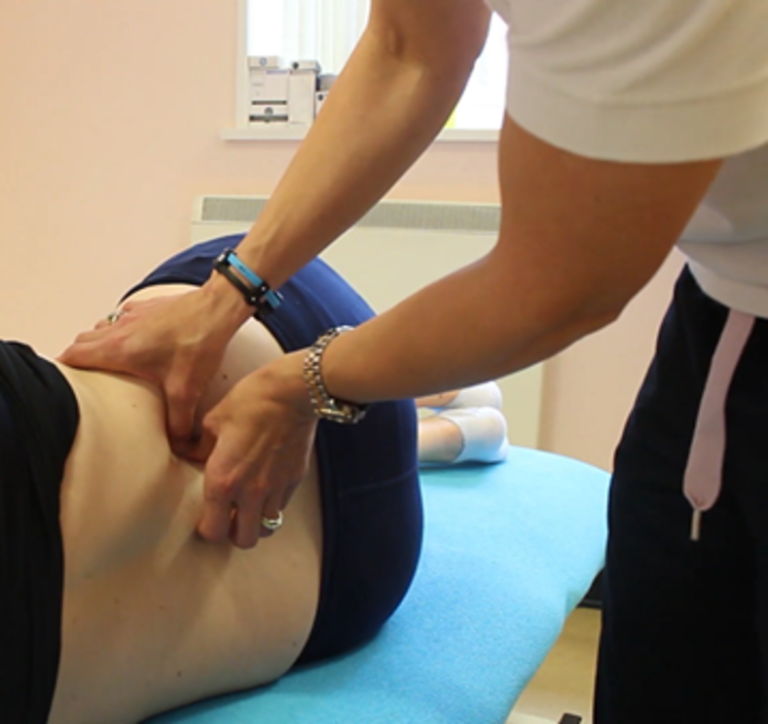Recommended practitioners
Find a local private physiotherapist, osteopath or chiropractor to treat your pregnancy-related pelvic girdle pain (PGP).

Physiotherapists have expertise in assessing and treating a range of joint conditions, which includes pregnancy-related pelvic girdle pain (PGP).
This usually involves a full assessment of your joints and muscles, followed by treatment including manual therapy for the affected joints and muscles, as well as specific exercises for your individual problems which can be helpful once the pain is under control.
Physiotherapy is available on the NHS through most maternity units or through your GP. Make sure you find someone who has undergone extra training in treating pelvic joint pain, although this doesn’t need to be a women’s health physiotherapist. Many women tell us that they have found sports injury or musculoskeletal physiotherapists who have treated them with manual therapy techniques and they have made a full recovery.
Also, if you are pregnant make sure whoever refers you is aware that you need to be seen quickly, as sometimes you can be put on a long waiting list by mistake when being seen quickly can reduce the deterioration of your condition. Alternatively, you can use a private physiotherapist but do try the NHS first.
If you feel you aren’t progressing and making a full recovery, as with any other medical condition, discuss this with your physiotherapist, or return to your GP and ask for a second opinion. Physiotherapy treatment is safe throughout pregnancy, and can keep you mobile and independent.
Osteopaths also use a range of hands-on techniques to treat the joints and soft tissues associated with pregnancy-related pelvic girdle pain (PGP).
Although rarely available on the NHS, many private osteopaths have the expertise and experience in treating women with PGP during and after pregnancy.
Do be a little wary of signing up for long courses of expensive treatment. If you don’t feel any benefits within a couple of treatments, discuss this with your therapist and ask why they think this may be. You may choose to ask for another opinion – another practitioner may be a better option than the one you have chosen.
Many chiropractors also have the skills and experience to treat women with pregnancy-related pelvic girdle pain (PGP).
Like physiotherapists and osteopaths, chiropractors use a range of hands-on techniques to treat the joints and soft tissues around the pelvis which cause PGP.
Do be a little wary of signing up for long courses of expensive treatment. If you don’t feel any benefits within a couple of treatments, discuss this with your therapist and ask why they think this may be. You may choose to ask for another opinion – another practitioner may be a better option than the one you have chosen.
There are differences in how physiotherapists, osteopaths and chiropractors treat women with PGP, although all use a combination of hands-on techniques to treat the joints and soft tissues around the hips and pelvis.
It is often a question of personal preference, which type of treatment works for you.
Before booking an appointment it is worth contacting the practitioner and asking about their experience and approach to make sure it is right for you.

Find a local private physiotherapist, osteopath or chiropractor to treat your pregnancy-related pelvic girdle pain (PGP).